
Dutch E-Bike Maker VanMoof Goes Bankrupt After Thriving During Pandemic
VanMoof BV, a Dutch electric-bicycle company that saw a surge in demand during Covid lockdowns, has been declared
2023-07-18 15:58
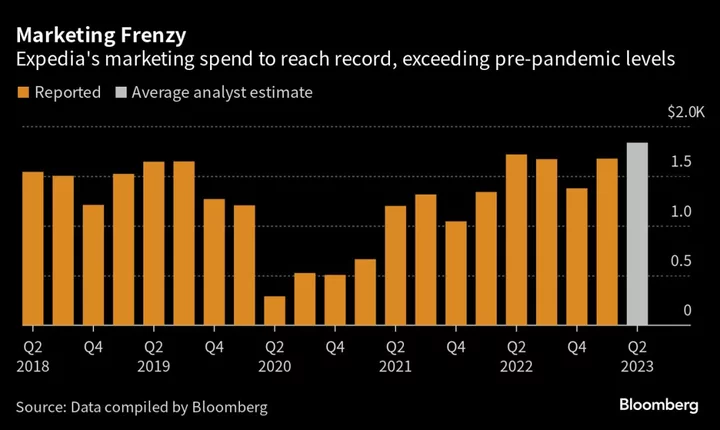
Expedia Launches Rewards Program Across Brands, Including Vrbo
Expedia Group Inc. is launching a long-awaited loyalty program across three of its flagship brands, capitalizing on a
2023-07-17 19:15
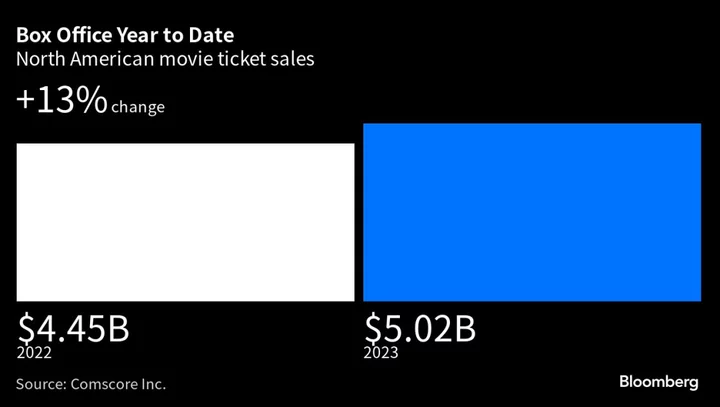
‘Mission: Impossible’ Opens to Lower-Than-Expected $56.2 Million
Mission: Impossible — Dead Reckoning Part One, the seventh installment of the action franchise starring Tom Cruise as
2023-07-17 01:45
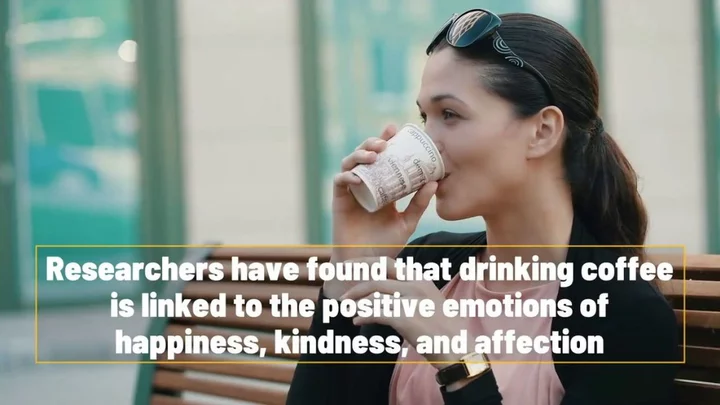
Scientists say drinking coffee gives ‘special boost’ to the brain
If you’re anything like us, the first coffee of the day is the only thing that can get us up on a morning – and it turns out, there’s real science behind it. Everyone knows that coffee can give us a welcome caffeine hit, but it’s now been revealed that the drink also gives us an extra ‘special boost’ too. Scientists have claimed that the act of drinking a cup of joe gives the body a lift, making us more alert, which can’t be replicated merely with caffeine. In fact, new research shows that drinking hot coffee activates additional areas of the brain. Sign up to our free Indy100 weekly newsletter Scientists from the University of Minho in Portugal and elsewhere looked into the effects of coffee outside of just caffeine content as part of a study – and they found that plain caffeine didn’t have the same impact. In fact, a cup of coffee also influenced working memory and goal-directed behaviour. “There is a common expectation that coffee increases alertness and psychomotor functioning. When you get to understand better the mechanisms underlying a biological phenomenon, you open pathways for exploring the factors that may modulate it and even the potential benefits of that mechanism,” study co-author Nuno Sousa explained. Experts said that drinking coffee actually increased the connectivity in the brain’s more advanced nerve network controlling vision, and other parts involved in working memory, cognitive control and goal-directed behaviour – something not found when participants only took caffeine. Researchers also said that if subjects wanted to not just feel alert but ready to go, caffeine alone might not do the job. “Acute coffee consumption decreased the functional connectivity between brain regions of the default mode network, a network that is associated with self-referential processes when participants are at rest,” study co-author Maria Picó-Pérez said. “The subjects were more ready for action and alert to external stimuli after having coffee,” she added. Have your say in our news democracy. Click the upvote icon at the top of the page to help raise this article through the indy100 rankings.
2023-07-16 23:46

A $600 Device Rethinks How the Back of Your Smartphone Can Look
Tino Hernandez, a recently graduated mathematics major, got in line for the Nothing Phone’s first pop-up in the
2023-07-15 05:27
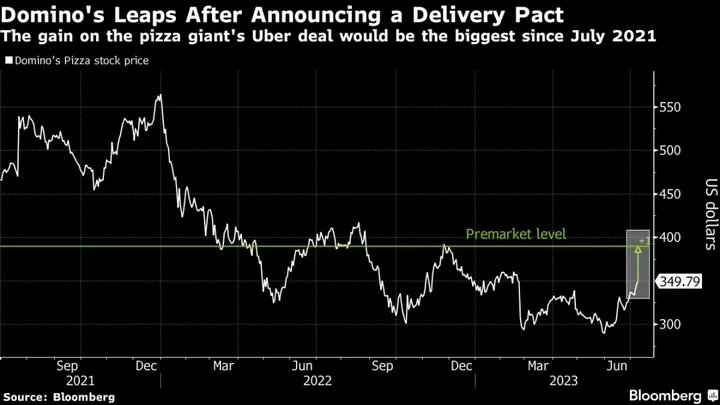
Domino’s Pizza Shares Jump on a Deal Allowing Orders Through Uber Eats
Domino’s Pizza Inc. shares jumped after the company announced a third-party ordering agreement with Uber Technologies Inc. The
2023-07-12 20:49

The 2024 Mercedes-AMG EQE Brings a Golden Age of Luxury EVs
Mercedes-AMG unveiled its EQS and EQE electric sedans in 2021 and 2022, respectively. Now we have AMG’s first
2023-07-12 17:54

Sonic the Hedgehog’s US Workers Vote to Join Union
The US home of Sonic the Hedgehog is now a union shop. Workers at Sega of America say
2023-07-11 04:49

Scientists make surprising discovery that could help boost the global population
Infertility is a problem that afflicts more than a billion people across the world, which is why treatments such as IVF are so important. The procedure (in vitro fertilisation, to use it’s full name) involves the extraction of an egg from the woman's ovaries to be fertilised with sperm in a laboratory and returned to the woman’s womb. The goal is that the resulting embryo will then grow and develop into a foetus, blessing the parent or parents with a baby. However, success rates for IVF – as in, the percentage of treatments that result in a live birth – remain somewhat unencouraging: 32 per cent for women aged under 35; 25 per cent for women aged 35 to 37, with the numbers continuing to drop the older you get, according to the NHS. Nevertheless, a major new study has revealed a striking new finding which could help boost the hopes of countless aspiring mums and dads across the world. Sign up for our free Indy100 weekly newsletter After analysing 3,657 frozen embryos over a period of eight years, researchers in Western Australia found that IVF was much more likely to work when eggs had been harvested in the summer. The team clarified that it didn’t seem to matter when the embryos were transferred to the mother’s womb, just when the eggs were collected. Indeed, the likelihood of babies being born when the eggs had been retrieved in the summer was 30 per cent higher than when they had been retrieved in the autumn, according to the scientists. The team also found that the temperature on the day of egg collection didn’t seem to have an impact on success rates, but the number of sunny hours did. Of the embryos they tested, those harvested on days that had the most sunshine were 28 per cent more likely to result in a live birth compared to the darkest and most overcast days. “Our study suggests that the best conditions for live births appear to be associated with summer and increased sunshine hours on the day of egg retrieval,” the study’s lead, Dr Sebastian Leathersich, of Perth’s King Edward Memorial Hospital, said about the paper, which was published in the journal Human Reproduction. Still, he noted: “There are many factors that influence fertility treatment success, age being among the most important. “However, this study adds further weight to the importance of environmental factors and their influence on egg quality and embryonic development." He further explained: “We effectively separated the conditions at the time of egg collection from the conditions at the time of transfer, demonstrating that environmental factors when the eggs are developing are as, if not more, important than environmental factors during implantation and early pregnancy.” The expert obstetrician and gynaecologist added: “Optimising factors such as avoiding smoking, alcohol and other toxins and maintaining healthy activity levels and weight should be paramount. However, clinicians and patients could also consider external factors such as environmental conditions.” Despite Dr Leathersich and his colleagues concluding that the temperature on the day of egg collection had little bearing on the success of the process, they also found that the temperature on the day of embryo implantation did make a difference. The chances of a live birth rate decreased by 18 per cent when the embryos were transferred on the hottest days (when average temperatures measured between 14.5C and 27.8C) compared to the coolest days (0.1C to 9.8C), and there was a small increase in miscarriage rates, from 5.5 per cent to 7.6. The finding that miscarriage rates were highest when embryo transfer took place on the hottest days is consistent with other studies showing higher rates of miscarriage in the summer months. “This suggests that the negative effects of high temperature are more likely related to early pregnancy rather than egg development,” Dr Leathersich concluded. When it comes to the disparity in success rates between eggs retrieved in summer and autumn, he and his team pointed out that melatonin levels could be at play. Differences in lifestyles between the winter and summer months may also play a role, he and his colleagues acknowledged. "It is possible that there are differences in activity, diet, and lifestyle in different seasons which could underlie the observed differences in live birth rates, though such data were not collected in this study," they wrote. "It is also possible that other environmental factors, including pollutants, may impact clinical outcomes." Whilst the study’s findings are compelling, Dr Leathersich and his team admitted that it did have its limitations. The research was done in hindsight, using eggs that had been frozen, then thawed, so it could not draw watertight conclusions. “Ideally, these findings should be replicated in other sites with different conditions and different treatment protocols to confirm the findings,” Dr Leathersich said. “It would also be interesting to look at the impact of season and environmental factors on sperm parameters, as this could have contributed to our observations.” He added: “We are now planning to analyse this same group of patients using air quality data, as there may be seasonal changes in exposure to harmful pollutants which could negatively affect reproductive outcomes. “Finally, given the huge increase in so-called 'social egg freezing' for fertility preservation and the fact that this group generally have flexibility about when they choose to undergo treatment, it would be very interesting to see if these observations hold true with frozen eggs that are thawed and fertilised years later. “Any improved outcomes in this group could have big impacts for women making decisions about their future fertility, but the long-term follow-up required means it is likely to be some time before we can draw any conclusions for this population.” Have your say in our news democracy. Click the upvote icon at the top of the page to help raise this article through the indy100 rankings.
2023-07-10 23:22
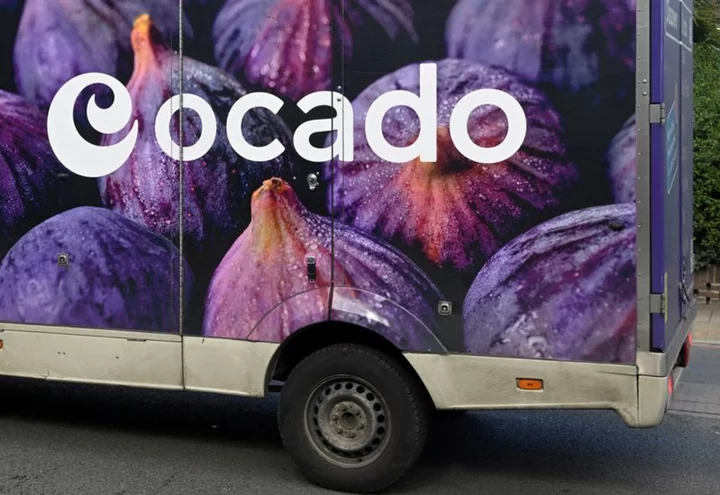
Ocado launches first robotic warehouse in Asia with Aeon
LONDON British online supermarket and technology group Ocado said on Monday its first robotic warehouse in Asia, built
2023-07-10 15:53

Vietnam Orders Netflix to Remove Chinese TV Drama Over Disputed Map
Netflix Inc. and FPT Telecom stopped offering the Chinese romantic TV drama Flight to You in Vietnam after
2023-07-10 11:23
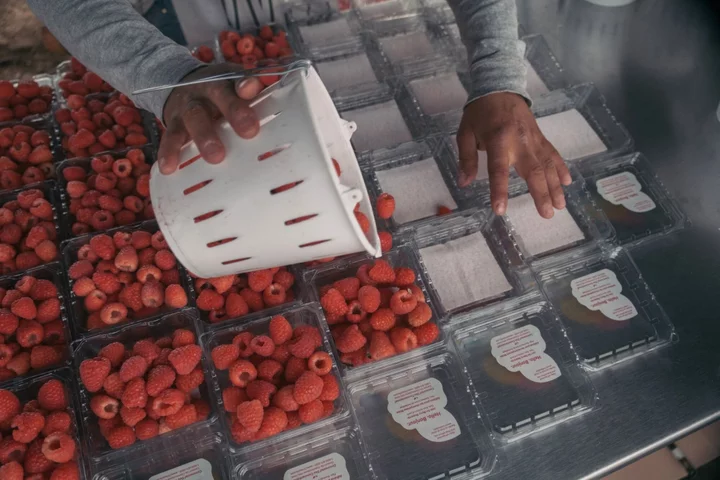
How the Food System Is Changing and What It Means for Investors
Global shifts in incomes and populations, geopolitics and climate change are combining to drastically alter the outlook for
2023-07-09 14:23
